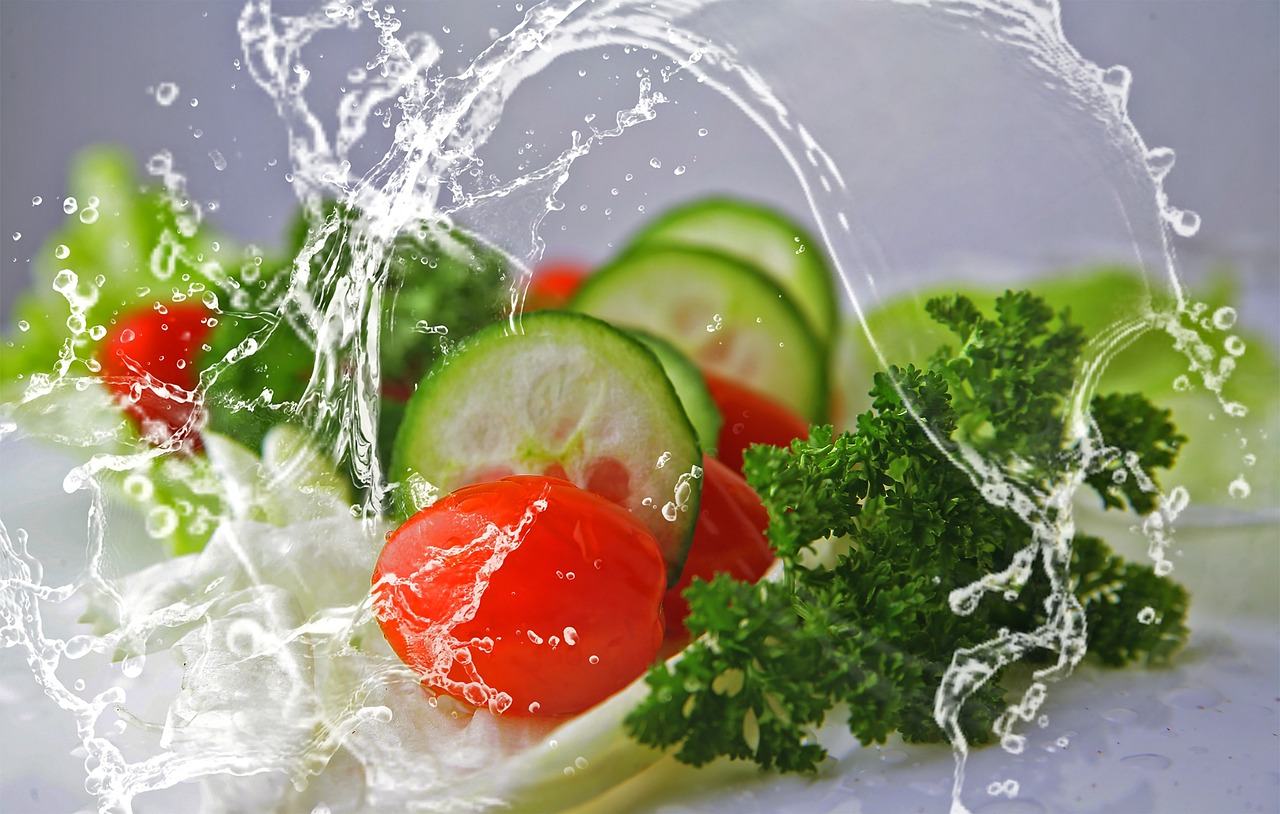Lifestyle
How To Feel Fresh All Day: Tips and Tricks for Daily Freshness
To Feel Fresh Life step by step, focus on taking care of yourself with wake-up routines, support your body with healthy food varieties, make a motivating work area, and imbue snapshots of delight into your daily routine.

Table of Contents
Introduction: the Feel Fresh concept
In the fast-paced life of the 21st century, the mission for sustained vitality has however critical as it very well might be slippery. We long to overcome the sleepiness of the morning, the midday slump, and the evening exhaustion that seems to be the standard. However, many of us feel lost in a sea of coffee cups and energy drinks, looking for a true, lasting refreshment. If you’re a health enthusiast who’s searching for a holistic approach to dealing with remaining energized and “how to feel fresh” throughout the whole day, then this article post is for you.
In the realm of wellness, ‘feeling fresh’ goes beyond a simple physical state and jumps into an extensive experience that involves both mind and body. It’s about maintaining a feeling of revitalization that supports your commitment with life’s various demands, challenges, and joys.
Welcome to the concept of the Feel Fresh Life – a way of life designed to keep you overflowing with essentialness from daybreak to nightfall.
Definition of “Feel Fresh”
Feeling fresh isn’t just about being drained of any physical transgressions; it’s about feeling energetic, engaged, and prepared to take on the day. A person who feels fresh exudes an aura of liveliness and positivity, which can influence their productivity, interpersonal interactions, and overall satisfaction with their day. The term encapsulates a state where both physical well-being and mental sharpness are in harmony, creating a balanced and energetic you.
Morning Rituals for a Fresh Start
Mornings set the vibe until the end of the day. A fresh beginning requires a harmonious mix of practices that take care of your physical and mental well-being. Rise early to cut out a quiet space for yourself, and enjoy a custom that encompasses hydration, movement, and mindfulness.
Early Wake-Up Habits
Waking up to a rhythmic and peaceful alarm, for example, delicate music or nature sounds as opposed to a shaking commotion can keep the stress response from kicking in. Opening your curtains to permit natural light into your space can also help regulate your body’s inside clock.
Hydration Practices
After waking, drink a glass of room-temperature water with a sprinkle of lemon to rehydrate your body and help in detoxification. This easy practice starts your digestion and assists your body with flushing out harms totaled during the night.
Refreshing Morning Exercises
Whether or not, it’s only for five minutes, taking part in a type of activity that strengthens your body, like stretching, yoga, or a lively walk, might increase at any point blood flow and oxygen to your cells, improving your energy levels for the day ahead.
Mindfulness and Gratitude Practices
Spend a few moments in calm reflection, setting goals for the day, and expressing thanks for the opportunity to encounter it. This practice adjusts your mental state with positivity, which can improve your overall mood and outlook.
Nourishing Your Body for Day-long Vitality
The food and beverages we eat can pronouncedly influence our energy levels. Guaranteeing that your body is appropriately taken care of is fundamental for keeping a constant flow of energy over the day.
Balanced Breakfast
Go all in consolidates a mix of confounded sugars, protein, and sound fats. This could be a bowl of cereal with nuts and seeds, a smoothie with greens and berries, or eggs with whole-grain toast. A good breakfast fills your body with the main supplements to launch your digestion and keep you satisfied until early in the day.
Hydrating Throughout the Day
Lack of hydration can cause feelings of weakness and sluggishness. Make it a highlight to hydrate routinely, and settle on hydrating food sources like cucumber, watermelon, and soups.
Snack Choices for Sustained Energy
Pick tidbits that offer a mix of protein, fiber, and a limited quantity of solid fats to keep your energy levels stable. Nut margarine with apple slices, yogurt with granola, or hummus with vegetable sticks are incredible choices.
Incorporating Feel-Fresh Foods into Your Diet
Pick tidbits that offer a mix of protein, fiber, and a restricted amount of strong fats to keep your energy levels stable. Nut margarine with apple cuts, yogurt with granola, or hummus with vegetable sticks are mind-blowing decisions.
Revitalizing Midday Practices
The midday mark frequently gets a plunge of energy as we digest our food and the morning’s adrenaline winds down. Battle this with revitalizing practices that give a revitalizing surge of energy to impel you through the afternoon.
Quick and Energizing Office Exercises
Short eruptions of physical work, even inside the imperatives of an office setting, can revive your body and brain. Shoulder shrugs, air-punching, or standing leg lifts can battle the inactive impacts of your working day.
Mindful Breathing for a Mental Reset
A couple of moments of deep breathing can oxygenate your mind and give a feeling of serenity in the midst of the turbulent workplace. It’s a cautious approach to getting to a completely relaxed outlook that can help your focus and productivity.
Healthy Lunch Options for Sustained Focus
Choose a lunch that consolidates complex carbohydrates, lean proteins, and vegetables to keep up with readiness and forestall the post-lunch slump. A nourishing salad with quinoa and grilled chicken, or a vegetable stir-fry with tofu are instances of dinners that hit the right balance.
Creating a Refreshing Workspace
The environment in which we work plays a tremendous part in our general well-being. Making a workplace that exudes freshness and clearness can improve your working day experience.
Organizing Your Desk for Clarity
Cleaning up your working area can clear your brain and enhance productivity. Doling out places for papers and supplies, and routinely cleaning up, keeps an invigorating and clear environment.
Incorporating Plants and Natural Elements
Indoor plants not only give a visual break from screens and papers yet in addition further develop air quality and lift mindsets. Normal components like wood and stone can add an establishing and quieting energy to your space.
Setting Up a Personal Feel-Fresh Corner
Assign a region of your working area where you can take a load off or participate in fast relaxation exercises. This could be a padded seat by a window where you can look outside or a peaceful corner with a little water highlight.

Afternoon Energizers
The hours leading to the evening often demand a revitalizing boost. Smart snacking and short exercises can keep your energy on an even keel, helping you sail through until the workday’s end.
Healthy Snack Choices
Pick bites that are light and supplement thick. A small bunch of nuts, a piece of dull chocolate, or some green tea can give a delicate lift without the accident that sweet bites initiate.
Stretching and Movement Exercises
Sneak in some extending, whether at your work area or in an assigned space, to combat muscle solidness and promote circulation. This can be pretty much as straightforward as standing up and aiming high, or doing a couple of neck rolls and side twists.
Tips for Combating Afternoon Fatigue
Some of the time, the 3 p.m. yawns hit paying little mind to how well you’ve dealt with yourself. Battle this with a sprinkle of cold water all over, a short stroll to get your blood siphoning, or a power rest in the event that your timetable permits.
Mindful Evening Wind-Down
How you approach the night can enormously mean for the nature of your rest and, subsequently, your capacity to feel new the following day. Effectively slowing down through calming ceremonies can help unwind and assist you with planning for a restoring rest.
Importance of Winding Down for a Restful Sleep
Perceive the meaning of a night schedule in indicating to your body that now is the right time to rest. This period permits your body and psyche to shed the day’s pressure and pull together energy on fix and reclamation.
Relaxing Evening Rituals
Take part in rehearses that sign rest to your brain and body, like a steaming shower, light extending, or perusing a book in delicate light. This progress assists you with segregating from the day’s exercises and getting ready to loosen up.
Digital Detox Practices
Guarantee your rest climate is helpful for quality rest. This includes keeping a cool temperature, guaranteeing dimness, and utilizing quiet fragrances like lavender.
Planning for a Reviving Night’s Sleep
Ensure your sleep environment is helpful for quality rest. This involves maintaining a cool temperature, ensuring darkness, and using calming scents like lavender.
Feel Fresh Beyond the Physical: Mental and Emotional Well-being
Physical practices are only one feature of staying fresh. Mental and emotional well-being are similarly significant in supporting a ceaseless feeling of imperativeness.
Stress Management Techniques
Overseeing pressure is critical for keeping a new and ready state. Procedures, for example, journaling, reflection, and looking for help through treatment or advising can assist you with handling the main drivers of your pressure and fabricating versatility.
Incorporating Mindfulness into Daily Life
The specialty of being available and living at the time can fundamentally raise your mindfulness and appreciation for life’s little delights. Care rehearses hone your concentration as well as permit space for certifiable unwinding.
Cultivating Positive Thoughts and Emotions
Deliberately directing your considerations towards the positive can move your energy and how you see the world. This doesn’t nullify the significance of tending to difficulties but instead outfits you with a more productive way to deal with critical thinking.
Personalizing the Feel Fresh Routine
One size fits none. Personalization is key to creating a routine that resonates with you and your lifestyle. Experiment with the various elements suggested above to curate a daily practice that enhances your unique sense of freshness.
Tailoring the Routine to Individual Preferences and Lifestyle
Are you an early bird or a night owl? Do you relish the serenity of morning meditations, or do you prefer to blend your mindfulness with an evening soak? Discover what times and activities best suit your disposition and weave them into your routine.
Experimenting with Different Elements to Find What Works Best
The pursuit of feeling fresh is a continuous experiment. Stay open to trying new foods, exercise regimens, and mindfulness techniques to uncover the combination that leaves you feeling most invigorated.
Conclusion of How to Feel Fresh Life
The path to feeling fresh all day is not a destination, but a deliberate series of choices and rituals that enhance the quality of each day. By merging physical well-being with mental and emotional balance, you can unlock a reservoir of energy and vibrancy that can redefine your experience of daily life.
The keys to the Feel Fresh Life are intention, attention, and daily dedication. Ensure that your practices are intentional, direct your attention to the moments that matter, and dedicate yourself to the pursuit of vitality. By adopting these principles and practices, you not only infuse your life with fresh energy but also radiate that freshness into the world around you.
We encourage you to share your own feel-fresh experiences and tips with our community. No single path is right for everyone, but the collective wisdom of our shared experiences can illuminate individual journeys towards a vibrant and engaged life. Start your day afresh, and may your vitality inspire the day ahead.
FAQ about Feel Fresh in Daily Life
How can I feel fresh life day by day?
To Feel Fresh Life step by step, focus on taking care of yourself with wake-up routines, support your body with healthy food varieties, make a motivating work area, and imbue snapshots of delight into your daily routine. Embrace care, take part in exercises you love, and encourage positive associations. Remain open to new encounters, celebrate little triumphs, and let go of what no longer serves you. An invigorated standpoint starts with purposeful decisions and a pledge to well-being.
How can morning routine contribute to feeling fresh all day?
Wake-up routines, including early wake-up habits, hydration practices, and mindfulness exercises, set an inspirational vibe for the day. They get ready both the body and mind, impacting generally freshness and imperativeness as the day unfolds.
What role does nutrition play in maintaining a feel-fresh lifestyle?
Nutrition is a key component of feeling fresh. A balanced breakfast, hydration strategies, and smart snack decisions provide the essential fuel to support energy levels. The right nutritional choices add to general essentialness and well-being.
How can I look fresh all day naturally?
Accomplishing a natural and fresh look over the day includes a basic skincare routine with delicate chemicals, hydrating lotions, and sunscreen. Remain hydrated by drinking more than adequate water, eat a decent eating routine rich in leafy foods, and get adequate rest. Utilize insignificant cosmetics for a light, normal appearance, and consider integrating reviving facial fogs to renew your skin. Embrace a healthy lifestyle to radiate freshness effortlessly.
Lifestyle
How to Improve Egg Quality for Fertility: Science, Lifestyle and Expert Tips

Improving egg quality is a major goal for many individuals and couples trying to conceive—whether naturally or through assisted reproductive technologies (ART) like IVF. While age is the most well-known factor impacting fertility, growing evidence suggests that lifestyle changes can significantly support egg health.
🧬 What Does “Egg Quality” Actually Mean?
Egg quality refers to the likelihood that an egg will be fertilized and develop into a healthy embryo. It’s determined by two major factors:
- Chromosomal Normality (Aneuploidy Risk)
A high-quality egg has the correct number of chromosomes. As you age, the chances of chromosomal abnormalities in eggs increase, which can lead to miscarriage or failed implantation. - Mitochondrial Health
Mitochondria are the energy powerhouses of a cell. In eggs, they provide the energy needed for fertilization, cell division, and early embryo development. Low mitochondrial function often equals poor egg viability.
⏳ Age and Egg Quality: What You Should Know
Egg quality naturally declines with age:
- After age 30: Decline begins gradually
- After 35: Decline accelerates
- After 40: Risk of chromosomal abnormalities increases sharply
However, age isn’t the only factor. Environmental toxins, chronic stress, poor diet, and lack of sleep can also negatively affect egg health—regardless of age.
🚫 Common Habits That Harm Egg Quality
To improve egg health, it’s crucial to first understand what damages it:
Habit Impact on Egg Health Smoking/Vaping Depletes ovarian reserve and increases oxidative stress Excessive Alcohol Impairs liver detox and hormone metabolism Poor Sleep Disrupts hormonal cycles and cellular repair High Sugar Diet Leads to insulin resistance and hormonal imbalances Chronic Stress Elevates cortisol and disrupts ovulation Exposure to Plastics Chemicals like BPA and phthalates act as endocrine disruptors
🥗 Best Foods to Improve Egg Quality Naturally
A fertility-boosting diet can reduce inflammation, optimize hormone production, and improve cellular health.
✅ Fertility Superfoods:
- Leafy Greens (spinach, kale): High in folate, iron, magnesium
- Avocados: Healthy fats, vitamin E, and antioxidants
- Salmon: Rich in omega-3s and selenium
- Blueberries & Berries: Powerful antioxidants that fight free radicals
- Eggs (especially pasture-raised): Contain choline and fat-soluble vitamins
- Lentils and Chickpeas: Great plant-based sources of iron and protein
- Brazil Nuts: Loaded with selenium, which protects eggs from oxidative stress
🧃 Foods to Avoid:
- Trans fats (found in packaged baked goods)
- Processed meats (contain nitrates and inflammatory agents)
- Refined carbs and sugars (increase insulin resistance)
- Soda and sugary beverages
6 Science-Backed Ways to Improve Egg Quality
1. Optimize Your Diet for Fertility
What the Research Says:
- A Mediterranean diet (rich in olive oil, fish, nuts, and vegetables) is linked to better IVF outcomes.
- Antioxidants (vitamins C, E, selenium) reduce oxidative stress, which damages eggs.
- Omega-3s (from salmon, chia seeds, walnuts) improve egg membrane health.
Foods to Focus On:
✅ Leafy greens (spinach, kale – high in folate)
✅ Berries (blueberries, raspberries – packed with antioxidants)
✅ Wild-caught salmon (omega-3s + vitamin D)
✅ Eggs (choline supports fetal development)
✅ Brazil nuts (selenium for egg maturation)
Foods to Avoid:
❌ Trans fats (fried foods, processed snacks)
❌ Excess sugar (disrupts hormone balance)
❌ High-mercury fish (swordfish, king mackerel)
2. Reduce Oxidative Stress & Inflammation
Oxidative stress damages egg cells over time. Ways to combat it:
Key Strategies:
✔ Exercise moderately – Intense workouts increase oxidative stress, but gentle movement (yoga, walking) helps.
✔ Prioritize sleep – Poor sleep raises cortisol, which may harm egg quality. Aim for 7–9 hours.
✔ Quit smoking – Toxins in cigarettes accelerate egg aging.
✔ Limit alcohol & caffeine – More than 1 drink/day or 200mg caffeine may impact fertility.
3. Support Mitochondrial Health
Mitochondria are the “batteries” of your eggs. As you age, they become less efficient.
How to Boost Mitochondrial Function:
- CoQ10 supplements (100–600mg/day) – Shown in studies to improve egg quality in IVF patients.
- Acupuncture – May enhance blood flow to ovaries (some studies suggest benefits).
- Intermittent fasting (under medical guidance) – Some research suggests it may help cellular repair.
4. Detoxify Your Environment
Everyday toxins can disrupt hormones and harm egg health.
Top Toxins to Avoid:
- BPA & phthalates (in plastics, receipts, canned foods) – Use glass containers instead.
- Parabens & synthetic fragrances (in cosmetics) – Switch to clean beauty products.
- Pesticides – Choose organic produce when possible (especially the “Dirty Dozen”).
5. Manage Stress & Balance Hormones
Chronic stress raises cortisol, which can interfere with ovulation.
Stress-Reduction Techniques:
- Mindfulness meditation (just 10 mins/day helps)
- Fertility yoga (poses like “legs up the wall” improve pelvic blood flow)
- Adaptogenic herbs (like ashwagandha – but check with your doctor first)
6. Consider Fertility-Boosting Supplements
Always consult a doctor before starting supplements.
Most Recommended:
- Prenatal vitamin (with methylfolate, not folic acid)
- CoQ10 (Ubiquinol form) – 200–400mg/day
- Myo-inositol – Especially helpful for PCOS (improves insulin sensitivity)
- Vitamin D – Low levels are linked to infertility (aim for 40–60 ng/mL)
💊 Supplements That Support Egg Health
Before taking any supplement, consult with a doctor or fertility specialist. However, the following nutrients have shown promising results in supporting egg quality:
1. CoQ10 (Ubiquinol Form)
Improves mitochondrial function, especially in women over 35. Studies show improved egg maturation and embryo quality.
2. Omega-3 Fatty Acids
Anti-inflammatory properties that support hormone balance and improve cervical mucus.
3. Vitamin D
Essential for ovulation and egg maturation. Many women are deficient.
4. Myo-Inositol
Great for women with PCOS. Improves insulin sensitivity and ovarian function.
5. N-Acetyl Cysteine (NAC)
An antioxidant that helps detoxify the liver and reduce inflammation.
6. Folic Acid / Methylfolate
Supports DNA replication and embryo development.
📆 Egg Quality Timeline: Why 3 Months Matters
Eggs take approximately 90 days to mature before they are ovulated. This means the actions you take today—diet, lifestyle, supplements—impact the eggs you’ll ovulate in the coming months.
That’s why most fertility specialists recommend committing to lifestyle changes at least 3 months before trying to conceive, especially if going through IVF or egg freezing.
👩⚕️ What If You’re Over 35 or Facing Fertility Issues?
Age isn’t everything. Plenty of women conceive in their late 30s or even 40s. However, if you’re over 35 and have been trying for 6+ months (or under 35 and trying for 12+ months), it may be time to consult a fertility specialist.
A fertility specialist can:
- Run hormone and egg reserve tests (AMH, FSH, estradiol)
- Conduct ultrasounds for antral follicle counts
- Recommend treatments such as IVF, IUI, or egg retrieval
- Create a personalized supplementation and lifestyle plan
👶 Can Egg Quality Be Improved?
While egg quantity (how many eggs you have left) is mostly determined by age and genetics, egg quality is more adaptable.
You can’t reverse aging, but you can:
✅ Reduce oxidative stress
✅ Improve mitochondrial energy
✅ Enhance blood flow to ovaries
✅ Support hormonal balance
✅ Create a healthier environment for eggs to thrive
✅ Final Thoughts: Supporting Egg Quality Naturally
Improving egg quality is not an overnight fix—but it is within your control. A holistic approach that includes nutrition, lifestyle, sleep, and stress management can go a long way in supporting your fertility.
Remember: Your reproductive health reflects your overall health. By caring for your body, you’re also protecting your future fertility.
Egg Quality: How To Improve Your Egg Quality from Youtube
5 Tips to Improve Egg Quality: What Lifestyle Changes are Recommended for Your Fertility?
Lifestyle
When Is It Time To Get a Divorce? Emotional, Mental & Practical Signs to Know

Making the decision to leave a marriage is one of the most emotionally intense and deeply personal choices anyone can face. For many, the idea of divorce brings with it a flood of conflicting feelings — guilt, fear, confusion, sadness, and sometimes, even relief.
But how do you really know when it’s time to get a divorce? What separates a rough patch from a permanent incompatibility? And when is staying in a marriage doing more harm than good?
Let’s explore the expert-backed signs, emotional red flags, and practical considerations that can help guide you through this life-changing decision.
💔 Why Deciding to Divorce Is So Emotionally Complex
Deciding to end a marriage isn’t just a legal or financial decision — it’s an emotional transformation. According to licensed psychotherapist Dr. Tracy Ross, many people delay divorce not because they’re happy, but because the unknown feels scarier than staying stuck.
“People can live in a state of limbo for years, afraid to take a step in either direction,” she says.
Fear of change, concern for children, financial dependency, and social stigma all play a role in why people stay in unhappy marriages far longer than they should.
🔥 Emotional Burnout: One of the Strongest Signs It May Be Time
Relationship burnout is a real psychological state, and it often signals the emotional end of a marriage. This goes beyond ordinary frustration or conflict — it’s the feeling of being emotionally depleted, chronically exhausted, and mentally checked out.
Signs of emotional burnout in a marriage may include:
- Feeling completely indifferent toward your partner’s thoughts or actions
- Avoiding time together at all costs
- A deep sense of loneliness, even while cohabitating
- Apathy about the marriage’s future
- Constant daydreaming about starting over alone
If you’ve reached the point where you feel there’s nothing left to say, nothing left to fight for, and nothing left to hope for — it may be time to start exploring a way out.
⚠️ Major Red Flags That Often Precede Divorce
Not all marriages are salvageable. In fact, some situations are simply too toxic or harmful to stay in. If your marriage includes any of the following, experts agree that divorce should seriously be considered:
🚩 1. Emotional or Physical Abuse
Abuse — whether physical, verbal, or emotional — is never acceptable. Staying in an abusive relationship can damage your mental health, self-worth, and safety.
🚩 2. Chronic Disrespect or Contempt
When one or both partners regularly express disdain, sarcasm, name-calling, or eye-rolling, this behavior erodes the foundation of trust and mutual respect.
🚩 3. Complete Communication Breakdown
Occasional communication issues are normal, but total communication shutdown is a strong indicator that connection and intimacy have died.
🚩 4. Repeated Betrayals
Whether it’s infidelity, financial secrets, or broken promises, repeated betrayals can be impossible to recover from without mutual commitment to rebuild.
🚩 5. Lack of Emotional or Physical Intimacy
Intimacy — not just sex, but emotional closeness — is essential in a healthy marriage. If it’s gone and efforts to revive it have failed, it may be time to consider moving on.
🤝 When Marriage Counseling Isn’t Enough
Marriage counseling is a powerful tool, but it requires both partners to be engaged. If one partner is checked out, abusive, or manipulative, therapy may not work.
“Therapy can’t fix a relationship where only one person wants change,” says Dr. Nikki Martinez, a licensed psychologist.
If you’ve tried couples therapy and still feel stuck, it might be a sign that the relationship has reached its end.
💬 Questions to Ask Yourself Before Making a Decision
Before filing for divorce, it helps to engage in self-reflection. Here are some expert-recommended questions to ask yourself:
- Am I staying in this marriage out of love, or fear of being alone?
- Have I communicated my needs clearly and honestly?
- Is my partner willing to meet me halfway?
- Am I emotionally or physically unsafe?
- How would my life look if I stayed like this for the next 5 or 10 years?
These questions can help you determine whether your marriage can be repaired — or whether it’s time to let go.
💼 The Practical Side of Divorce: What to Prepare For
If you’ve made the decision to move forward with divorce, preparation is key. Here are some practical steps to consider:
- Seek legal counsel: Understand your rights and obligations.
- Get financial clarity: Know your assets, debts, and income sources.
- Plan for children (if applicable): Work toward a co-parenting plan that puts their needs first.
- Find emotional support: Whether therapy, support groups, or close friends, don’t walk through this process alone.
- Protect your mental health: Divorce is emotionally taxing, and self-care is non-negotiable.
🧠 Mental Health Matters: Divorce Can Be the Beginning, Not the End
Divorce isn’t a failure — it can be a conscious choice for growth, healing, and peace. In fact, many people report better mental health, emotional clarity, and a renewed sense of purpose after divorce.
“It’s OK to choose your own peace, even if others don’t understand it,” says Dr. Ross.
Sometimes, walking away is the bravest and most loving decision you can make — for yourself and your future.
📝 Final Thoughts: Trust Yourself, Even If It’s Scary
Choosing to end a marriage is rarely black and white. It’s a process filled with emotion, self-reflection, and uncertainty. But if you’ve reached a place where staying is more painful than leaving, you owe it to yourself to explore your options.
You don’t have to rush, but you also don’t have to stay stuck.
Trust your inner voice. Protect your peace. And know that healing — while not easy — is always possible.
Lifestyle
Financial Well-Being: Building a Healthy Relationship with Money
In the intricate tapestry of life, our relationship with money is a thread that weaves through every aspect of our existence. Whether we acknowledge it or not, the way we handle, think about, and interact with money has a profound impact on our well-being.
In the intricate tapestry of life, our relationship with money is a thread that weaves through every aspect of our existence. Whether we acknowledge it or not, the way we handle, think about, and interact with money has a profound impact on our well-being. Understanding this connection is pivotal for anyone seeking a balanced and prosperous life. But where do we begin to untangle the complexities of our financial life and forge a path to true financial well-being? This comprehensive guide is designed to walk you through the phases of this personal financial odyssey.

Table of Contents
I. Introduction
Navigating the seas of personal finance can be daunting, but it’s a quest that’s worthy of every minute invested. Financial well-being encompasses more than just having a robust bank account; it speaks to the peace of mind that comes from knowing you’re equipped to handle the challenges life throws your way.
Defining Financial Well-Being
At its core, financial well-being is the state of being comfortable, happy, and prosperous due to one’s financial situation. It signifies the ability to meet current and ongoing financial obligations, feel secure in one’s financial future, and make choices that allow enjoyment of life.
Recognizing the Impact of Money on Overall Health
The links between financial and physical health are undeniable. Chronic stress related to financial strains can raise blood pressure, contribute to heart disease, and even reduce immune function.
The Connection Between Financial Literacy and Well-Being
A key foundation of good money management is financial literacy. The more knowledgeable we are about managing our finances, the better we can work towards financial health and well-being.
II. Assessing Current Financial Health
To chart a course toward financial well-being, you need to understand your current position. It’s akin to a health check-up, but for your money.
Understanding Personal Financial Goals
Your life’s goals and aspirations are unique, and they should guide your financial plan. These could range from everyday wants to more significant life achievements like owning a home or ensuring a comfortable retirement.
Evaluating Income, Expenses, and Debt
Income, expenses, and debt are the three pillars of personal finance. Conduct an honest assessment to ascertain how you’re faring in managing these aspects of your financial life.
The Importance of Regular Financial Check-ins
Take time for regular ‘financial health’ check-ups to ensure you’re on track. Doing so allows you to make adjustments as your life circumstances and priorities change.
III. Establishing a Clear Budget and Financial Plan
A budget is your financial blueprint; it helps your money work for you rather than the other way around.
Creating a Realistic Monthly Budget
A budget that’s both detailed and attainable is a powerful tool. It helps rein in spending, save for future goals, and even provide a sense of control in a world that’s often financially unpredictable.
Setting Short-Term and Long-Term Financial Goals
Tangible, achievable, and time-bound goals keep you motivated. Whether it’s a vacation fund or a down payment for a house, linking specific goals to your budget ensures they’re given the priority they deserve.
Developing Strategies for Saving and Investing
Savings and investments are the engines that drive financial growth. Choose the right strategies that align with your risk tolerance and financial goals.
IV. Building Emergency Funds and Financial Cushions
An emergency fund is the first line of defense in your financial arsenal. It stands between you and life’s inevitable financial curveballs.
The Importance of Emergency Savings
An emergency fund prevents you from sliding into debt when unexpected expenses arise. It brings a measure of stability and security to your financial life.
Strategies for Building and Maintaining Financial Cushions
Consider these highly manageable methods to consistently build and maintain your emergency fund, without straining your monthly budget.
Preparing for Unforeseen Financial Challenges
Prepare for worst-case scenarios by implementing insurance strategies that protect your assets and your family in times of need.
V. Understanding Credit and Debt Management
Credit and debt can be double-edged swords. When handled well, they can be powerful allies in your financial growth.
Navigating the World of Credit Scores
Your credit score is a financial report card. Understand how it’s calculated and the factors that influence it.
Responsible Credit Card Use and Management
Credit cards offer convenience and perks, but also carry risks. Learn how to wield them responsibly to avoid costly pitfalls.
Strategies for Effective Debt Repayment
From the high-interest snowball method to the broad-finished-quick approach, there are several strategies you can employ to tackle debt smartly and systematically.
VI. Investing in Financial Education
In a world where financial products are more complex than ever, education is the key to sound financial decision-making.
The Role of Continuous Learning in Financial Literacy
Lifelong learning is just as important in finance as it is in any other field. Stay abreast of financial news and trends to make informed decisions.
Resources for Improving Financial Knowledge
From traditional classes to online platforms, there are a wealth of resources to improve your financial literacy.
Seeking Professional Advice for Complex Financial Situations
Sometimes, situations are too complex for a DIY approach. Financial professionals can provide invaluable support and expertise.
VII. Creating Multiple Income Streams
Diversifying your income can provide stability against job loss and a means to reach financial goals more expediently.
Diversifying Income Sources for Stability
Explore different income streams, such as freelance work, rental properties, or passive income, to spread out your financial risk.
Exploring Passive Income Opportunities
Passive income is money that keeps coming in without you having to actively work for it. Here are some popular passive income ideas you can explore.
Balancing Multiple Income Streams for Financial Security
Ensure you have a balance between your primary income, your side ventures, and your investments. Each should contribute to a holistic financial strategy.
VIII. Mindful Spending and Consumer Choices
Our consumption patterns have direct implications on our financial state. Mindful spending can lead to more conscious financial management.
Practicing Conscious Consumerism
Be deliberate with your spending. Understand the impact of every purchase and make choices that align with your values and financial goals.
Differentiating Between Needs and Wants
The age-old mantra of ‘knowing the difference’ holds true. Prioritize needs over wants, and strive to create a spending environment that acknowledges that distinction.
Overcoming Impulse Buying and Emotional Spending
Impulse buying is often driven by emotion. Develop strategies to manage these triggers and take control of your purchasing decisions.
IX. Building a Sustainable and Responsible Financial Lifestyle
Today’s consumer has a myriad of choices, many of which can have wider ethical and environmental implications.
Prioritizing Sustainable and Ethical Investments
Your money can be a powerful tool for good. Explore sustainable and ethical investment options that align with your values.
Eco-Friendly and Socially Responsible Spending Habits
Your spending habits also reflect on your values. Opt for eco-friendly and ethically manufactured products and services where possible.
The Intersection Between Financial and Environmental Well-being
Recognize the interconnectedness of financial and environmental health. Building a greener lifestyle has the potential to save money and the planet simultaneously.
X. Financial Planning for Life Milestones
Life doesn’t stand still, and neither should your finances. Plan ahead for significant life events to ensure you’re financially prepared.
Saving for Education and Career Transitions
Whether it’s furthering your education or navigating a career shift, robust financial planning makes these transitions smoother.
Planning for Homeownership and Real Estate Investments
Homeownership often involves the largest purchase in one’s life. Understand the financial implications and planning strategies involved.
Retirement Planning and Long-Term Financial Security
Even though retirement may seem distant, it’s never too early to start planning. In fact, the earlier, the better due to the power of compound interest.
XI. Managing Financial Stress and Anxiety
Money worries can be all-consuming, but there are practical strategies to manage and alleviate this stress.
Identifying and Addressing Sources of Financial Stress
Pinpoint the specific financial stressors in your life. Once identified, you can take targeted action to address them.
Coping Strategies for Financial Anxiety
From visualization techniques to stress-relief activities, these coping strategies can help you manage financial-related anxiety.
The Connection Between Mental Health and Financial Well-being
Mental health and financial well-being are deeply interlinked. Taking care of your mental health can, in turn, positively impact your financial life.
XII. Open Communication About Finances in Relationships
Money is often a taboo topic, yet open communication is essential, especially in relationships.
Navigating Financial Discussions with Partners
Honest and open dialogues with your partner about finances can strengthen your relationship and can lead to aligned financial goals.
Establishing Shared Financial Goals and Plans
When partners share common financial goals, their combined efforts can achieve remarkable results.
Strategies for Resolving Financial Conflicts in Relationships
Conflicts are inevitable, but they can be resolved. Employ strategies such as compromise and professional mediation for a healthier financial foundation in your relationship.
XIII. Building a Healthy Financial Mindset
Your beliefs and attitudes towards money shape your financial reality. Transforming your mindset is a crucial step in achieving true financial well-being.
Shifting from Scarcity to Abundance Thinking
Adopt an abundance mindset. This shift in perspective can open you up to new opportunities and a more fulfilled financial life.
Cultivating Gratitude for Financial Resources
Gratitude is a powerful force. Cultivate it for the financial blessings in your life, no matter how small.
The Impact of Mindset on Financial Decision-Making
Your mindset directly influences the decisions you make with money. Understand this connection to make more conscious and empowering choices.
XIV. Success Stories and Financial Transformations
Real-life stories of success and transformation can be incredibly motivating. They serve as testaments to the principles explored in this guide.
Real-life Experiences of Financial Success
Read about individuals who have taken control of their financial destinies and achieved remarkable success.
Positive Changes in Lifestyle and Well-being
Explore the non-financial benefits experienced by those who have improved their financial well-being.
Practical Tips and Lessons Learned from Financial Journeys
Extract the practical tips and lessons from these stories to apply to your own financial voyage.
XV. The Evolution of Financial Well-Being
Financial well-being is not a destination, it’s a continuous evolution. Keep the momentum going and adapt to the changes life brings.
Embracing Ongoing Financial Growth
Stay committed to your financial education and personal development. It’s a lifelong process that rewards persistence.
Adapting to Changing Economic Landscapes
Economies are in a state of constant flux. Develop the skills to adapt and thrive in any financial environment.
Inspiring a Community of Financially Empowered Individuals
Share your knowledge and experiences to build a community of individuals who take control of their financial well-being.
XVI. Conclusion
In conclusion, money doesn’t have to be a source of stress in life. By building healthy financial habits, fostering a positive relationship with money, and continuously educating ourselves, we can all achieve a state of financial well-being that supports a fulfilling and prosperous life.
But remember, this path is not one to be traveled alone. Seek out mentors, financial planners, and a supportive community to walk alongside you. Together, we can redefine our relationship with money and live life to its fullest.
-

 Personal Care6 months ago
Personal Care6 months agoWhy Regular Massages Could Be the Game-Changer Your Body and Mind Crave
-

 Mental Health5 months ago
Mental Health5 months agoHow to Overcome Phobias: 15 Positive Psychology-Based Strategies That Really Work
-

 Lifestyle6 months ago
Lifestyle6 months agoWhen Is It Time To Get a Divorce? Emotional, Mental & Practical Signs to Know
-

 Lifestyle12 months ago
Lifestyle12 months agoFinancial Well-Being: Building a Healthy Relationship with Money
-

 Fitness6 months ago
Fitness6 months ago6 Quick Morning Exercises to Burn Belly Fat All Day
-

 Lifestyle6 months ago
Lifestyle6 months agoHow to Improve Egg Quality for Fertility: Science, Lifestyle and Expert Tips
-

 Mental Health6 months ago
Mental Health6 months agoWhat Is A Depression Attack? Symptoms, Causes & How To Cope With One
-

 Food6 months ago
Food6 months agoTop 7 Magnesium-Rich Nuts and the Best Ways to Eat Them for Maximum Health Benefits








